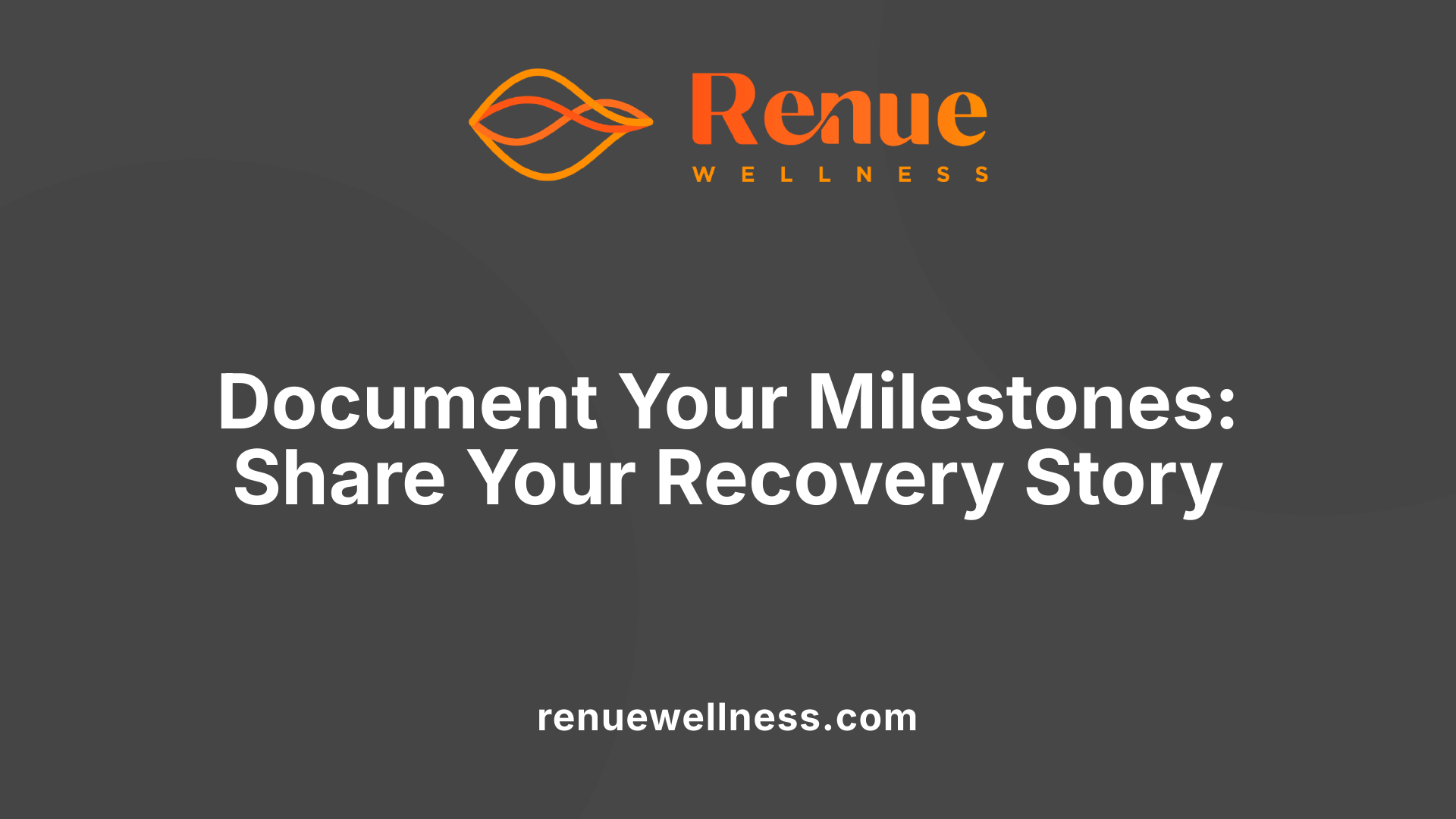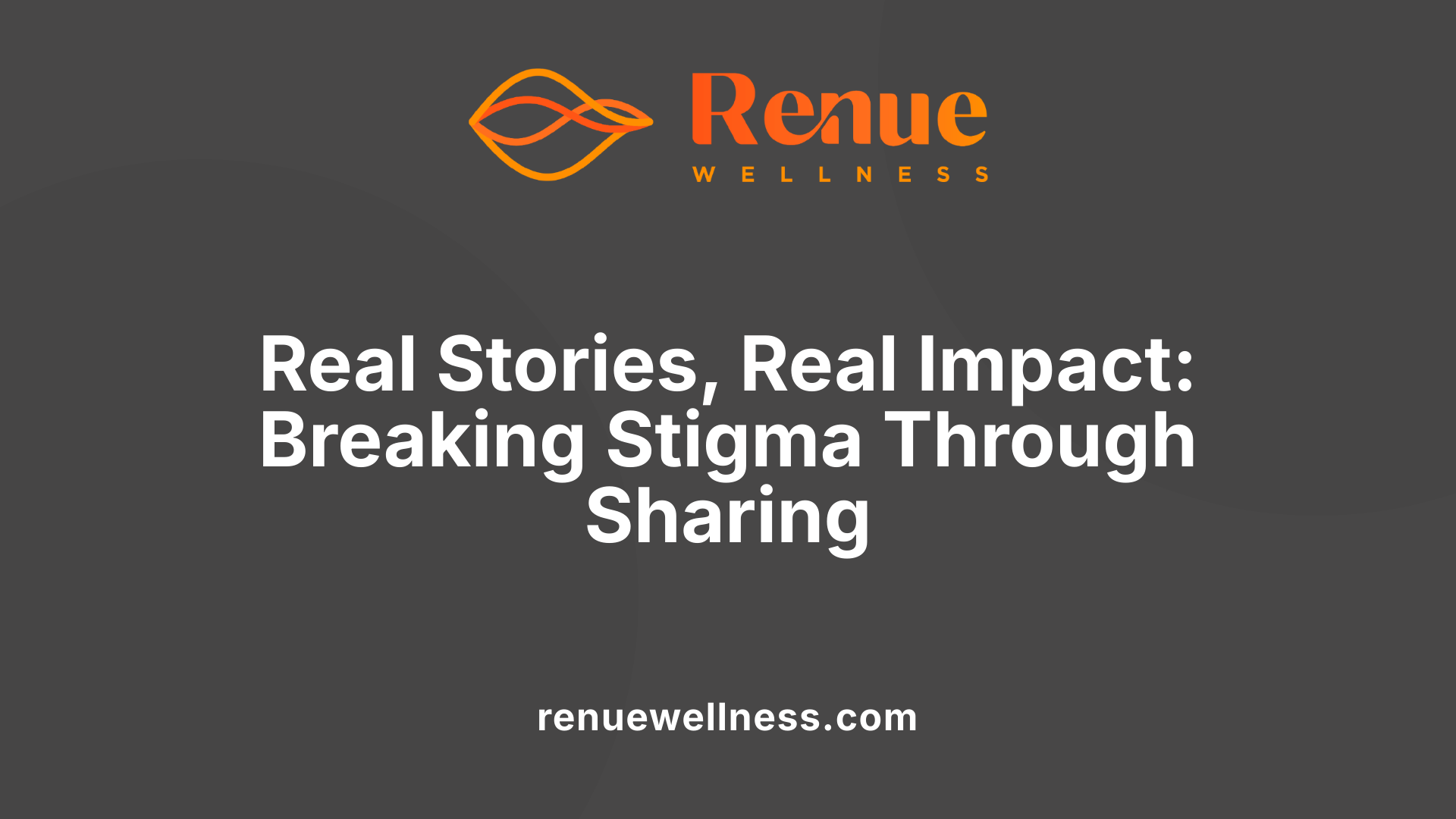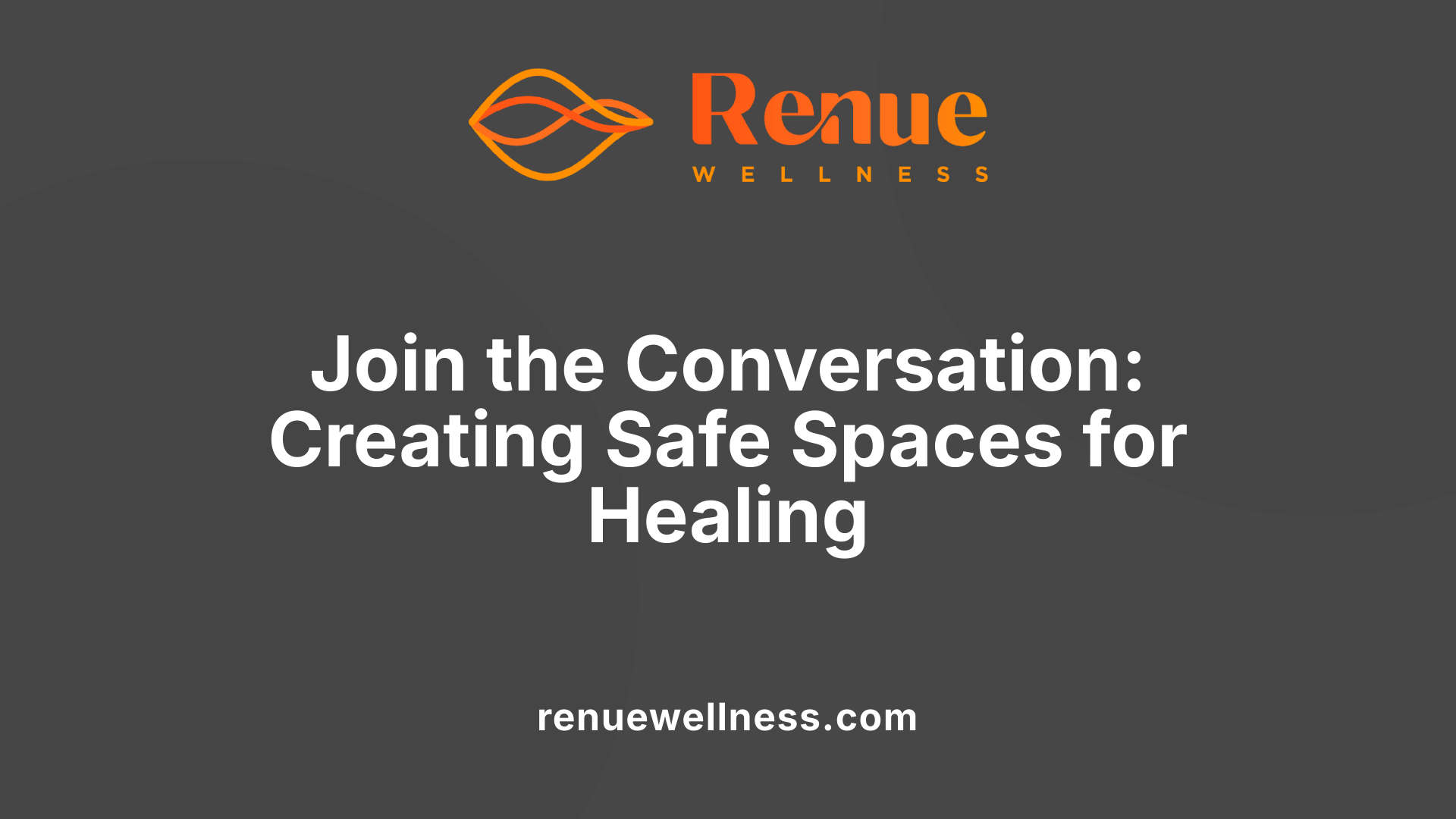How One Patient Turned Their Recovery Into a Blog (and How You Can Too)


July 17, 2025
From Struggles to Stories: The Power of Sharing Recovery Journeys
Many individuals who face health challenges—from addiction and eating disorders to neurological injuries—find strength in sharing their stories. Transforming these personal experiences into blogs not only aids in their healing process but also lights the path for others. This article explores how turning recovery into a blog can serve as a catalyst for hope, community support, and advocacy, illustrating practical strategies and inspiring narratives of resilience.
The Therapeutic Role of Blogging in Recovery
Therapy blogs have become an essential resource for patients on the path to recovery, offering guidance and motivation that reinforce their healing processes. These blogs help individuals understand their treatment plans better, clarify what to expect, and foster a sense of control over their health journey.
One of the key ways blogs support recovery is by discussing the different factors influencing outcomes, such as injury severity, adherence to therapy, lifestyle habits, and estimated timelines for recovery. This information sets realistic expectations and helps patients stay engaged and committed.
Addressing setbacks and emotional challenges is another important role of therapy blogs. They provide reassurance and strategies to overcome obstacles, maintaining motivation and resilience through difficult times. Additionally, many blogs include practical self-management tools—like home exercise guides and daily routines—that patients can use outside clinical settings, reinforcing the progress made during therapy sessions.
Furthermore, sharing success stories and testimonials from others who have overcome similar challenges fosters hope and confidence. Utilizing multimedia elements such as videos, infographics, and webinars enhances these inspiring narratives, making them more accessible and motivating.
Blogs also serve to position healthcare providers as trusted experts by sharing research-based content, which helps build trust with patients. Open communication channels through comment sections and feedback forms encourage questions and ongoing dialogue, ensuring that individuals feel supported and heard.
The consistent production of high-quality content benefits not only patients but also clinics by improving patient outcomes, boosting credibility, and attracting new clients. Overall, therapy blogs are powerful tools that promote a holistic, informed, and connected recovery experience.
How can personal recovery stories help motivate others facing health challenges?
Personal recovery stories serve as a beacon of hope, illustrating that overcoming health issues is possible. They provide practical insights, emotional support, and a sense of community, empowering others to pursue their own healing journey. Sharing these stories fosters empathy, reduces stigma, and encourages resilience, making recovery feel attainable for all.
Inspiring Personal Journeys of Transformation

How can individuals document their recovery challenges and milestones to help and inspire others?
Documenting personal recovery stories is a powerful way to inspire hope both for oneself and for others facing similar struggles. Many individuals keep detailed records through journaling, which captures emotional insights and progress over time.
Digital diaries, blogs, or social media posts are popular methods to share milestones safely while reaching a larger audience. Videos and photographs add a visual dimension, making stories more relatable and impactful. It’s important to share in a way that respects privacy and safety, avoiding sensitive information.
Sharing stories online can challenge stigma, offer encouragement, and demonstrate that recovery is possible. Organizations like the Pathways Wellness Center or the Scottish Recovery Network offer guidance on safe and respectful storytelling.
Balancing online sharing with offline privacy helps protect mental health. Personal documentation also boosts motivation and accountability, reinforcing commitment to recovery. These stories foster a sense of community, showing others they are not alone and that their efforts are worthwhile.
In summary, documenting recovery milestones through various mediums—while safeguarding personal boundaries—serves as both a therapeutic exercise and an inspiring resource for those on similar journeys. It nurtures resilience, encourages continued progress, and helps build understanding and hope across communities.
Overcoming Adversity: The Power of Shared Stories
 Sharing personal stories of recovery is a powerful way to inspire others and foster a sense of community. Many individuals, from veterans and healthcare workers to community heroes, have overcome significant health and personal challenges and now use their experiences to motivate others.
Sharing personal stories of recovery is a powerful way to inspire others and foster a sense of community. Many individuals, from veterans and healthcare workers to community heroes, have overcome significant health and personal challenges and now use their experiences to motivate others.
Authenticity plays a crucial role in storytelling. When stories are told honestly, with vulnerability and hope, they resonate deeply with audiences. These genuine narratives help break down stigma surrounding health conditions, making it easier for others to seek help and feel understood.
In addition to written stories, multimedia elements like videos, infographics, and webinars amplify the impact. Videos showcasing personal journeys, infographics explaining health conditions, and live webinars Q&A sessions make stories more accessible and engaging.
Sharing stories reduces societal stigma and promotes understanding of complex health issues. For instance, personal accounts from individuals recovering from addiction or chronic illnesses humanize these conditions, encouraging empathy and support.
For those interested in starting their own health recovery blog, an effective approach involves sharing an authentic and detailed personal journey. Begin with your motivations, struggles, and milestones—this creates a connection with readers. Be honest and vulnerable, reflecting both the difficulties faced and the lessons learned.
Maintain a consistent posting schedule with engaging content such as tips, reflections, and advice. Craft a compelling headline that attracts your target audience. Find your voice—whether compassionate, witty, or straightforward—to make your writing relatable. Including quotes, specific details, and recognition of your support system enhances credibility and makes your story more impactful.
Overall, storytelling is a vital tool in health recovery advocacy, helping to inspire, educate, and support others while reducing stigma and fostering a more understanding society.
Building a Supportive Community Through Sharing
 Online communities and social media play a vital role in supporting health recovery efforts by creating accessible spaces for connection and information sharing. These digital platforms enable individuals to share their personal stories, gather encouragement, and access tailored resources, which can significantly boost motivation and resilience during the recovery process.
Online communities and social media play a vital role in supporting health recovery efforts by creating accessible spaces for connection and information sharing. These digital platforms enable individuals to share their personal stories, gather encouragement, and access tailored resources, which can significantly boost motivation and resilience during the recovery process.
Creating safe, open environments where recovery stories are shared fosters a sense of belonging and encouragement among participants. These spaces help to normalize challenges, reduce feelings of isolation, and promote understanding. Support groups on social media or community forums serve as virtual safe havens where members can seek advice and emotional backing without judgment.
The inclusion of multimedia content—such as videos, infographics, webinars, and live Q&A sessions—enhances engagement and the impact of shared stories. Live events and visual materials make recovery journeys more relatable and inspiring, offering real-time interaction and an interactive experience. These tools help individuals absorb information more effectively and stay actively involved in their recovery.
| Platform Type | Engagement Method | Benefits | Example Uses |
|---|---|---|---|
| Social Media | Community groups, posts | Peer support, stigma reduction, quick updates | Sharing success stories, daily encouragement |
| Webinars & Videos | Live sessions, tutorials | Education, expert insights, motivation | Interviews with recovered individuals, Q&A sessions |
| Forums & Blogs | Written stories, discussions | Safe sharing space, sense of community | Personal recovery stories, mental health tips |
These digital efforts not only promote emotional well-being but also help dismantle stigmas around health conditions, encouraging others to seek help. They extend the reach of professional guidance and foster a community where resilience and shared experiences serve as powerful healing tools.
In sum, when thoughtfully managed, online communities and multimedia engagement significantly enhance recovery journeys by providing ongoing support, education, and a sense of collective progress.
The Art of Storytelling in Health Recovery Blogs

How can storytelling techniques be used to craft compelling health recovery blog posts?
Effective storytelling is central to creating engaging health recovery blogs that resonate with readers. One primary method involves sharing authentic personal narratives that detail the challenges faced, milestones achieved, and emotional growth experienced throughout the recovery process. These real stories serve as powerful tools to inspire and motivate others.
In crafting these stories, bloggers often employ narrative elements such as setting, characters, and a clear story arc. For instance, describing the initial struggles (setup), the obstacles and breakthroughs (rising action), the turning point (climax), and the ongoing journey (resolution) provides a natural, engaging flow. This structure helps readers connect deeply with the content.
Sharing lessons learned and positive outcomes not only encourages hope but also reinforces the possibility of recovery. When individuals see tangible progress, it fosters resilience and perseverance in those still on their journey.
In addition, incorporating multimedia elements like videos, infographics, and webinars enriches the storytelling, making it more authentic and memorable. These tools help visualize progress, explain complex concepts, and add emotional depth.
Building trust is crucial. Honest, relatable stories that highlight both struggles and successes foster a sense of community and support. They demonstrate that no one is alone and that recovery is possible with perseverance and support.
Overall, employing these storytelling techniques transforms dry information into compelling, relatable content. This approach can motivate patients, educate the public, and strengthen the bonds within health communities.
Transforming Recovery Into Inspiration and Advocacy
Personal stories of recovery serve as powerful tools to raise awareness about health conditions and transform public perceptions. When individuals share their journeys—whether overcoming addiction, eating disorders, or health-related challenges—they humanize these issues and foster understanding.
Sharing success stories and testimonials can motivate others to embark on their own paths to healing. For instance, stories like Chris McKenzie’s—from addiction and incarceration to rebuilding his life—highlight the possibilities of change, inspiring hope and resilience in readers facing similar struggles.
These narratives also support advocacy efforts aimed at improving health services and reducing stigma. Personal experiences underscore the need for compassionate, accessible care and help influence policy change. When people openly discuss their challenges and triumphs, they dismantle misconceptions about mental health, substance use, or chronic conditions.
Encouraging others to share their journeys creates a ripple effect of hope. By telling their stories, individuals contribute to a community that values resilience, empathy, and support. This collective sharing fosters a culture where recovery is celebrated, and no one feels isolated in their struggles.
The impact of personal storytelling is amplified when supplemented with multimedia elements—videos, infographics, or webinars—that engage diverse audiences. Platforms like blogs and social media make it easier to reach wider communities, strengthening the collective voice of advocacy and support.
Ultimately, these narratives serve as symbols of perseverance. They remind us that recovery is possible, that health challenges do not define us, and that sharing our stories can ignite hope and drive positive change for others.
Embracing the Power of Personal Stories in Recovery
Turning personal health challenges into a blog is more than sharing a story; it is about creating a community of hope, understanding, and resilience. From inspiring journeys of overcoming addiction, mental health struggles, or physical injuries, to providing practical tips on blogging and community engagement, these narratives serve as beacons for others embarking on their healing paths. As more individuals open up through their blogs, they not only document their milestones but also foster collective strength and advocacy. Recovery stories remind us that no one is beyond help and that sharing our truths can inspire monumental change—for ourselves and for the world around us. Embrace your story, share your journey, and be part of the movement to empower others through candid, heartfelt storytelling.
References
- Therapy Blogs for Patient Recovery: Guiding Patients Through ...
- From Rock Bottom to Recovery | Chris McKenzie's Story
- Getting My Life Back - A Patient's Story of Recovery
- From Recovery to Discovery: Meet @scottrl | Mayo Clinic Connect
- Recovery Happens in the Little Moments, Celebrate Them
- My Recovery from Myalgic Encephalomyelitis, or Chronic Fatigue ...
- Heart, soul, and redemption: My journey to addiction—and back
- Recovery: Taylor Engle and Her Story on How to Take Your Life Back
Recent Posts
Conditions Treated
AnxietyDepressionOCDPTSDPostpartum DepressionPain ManagementSubstance AbuseSuicidal IdeationOur Location


